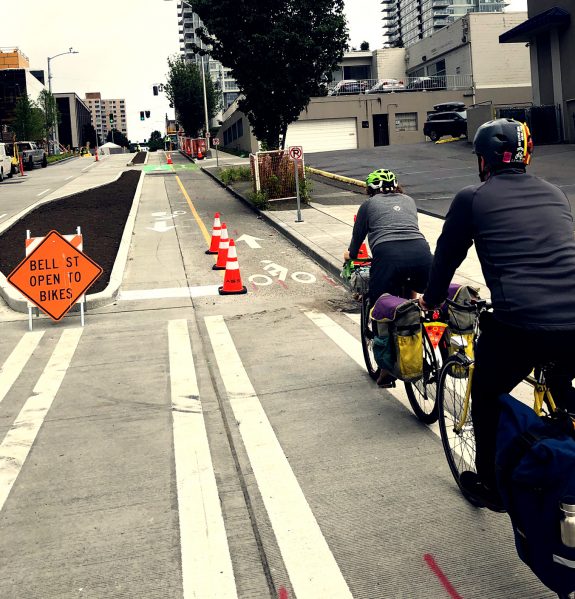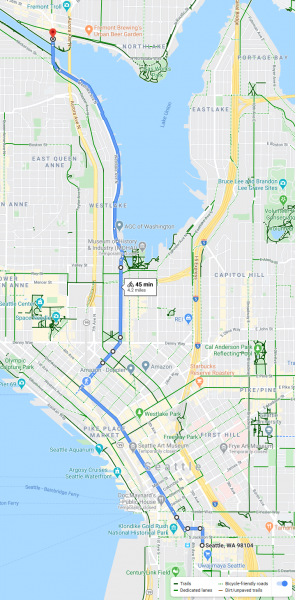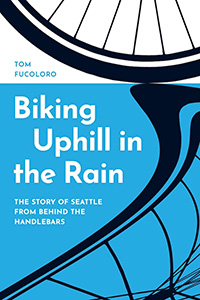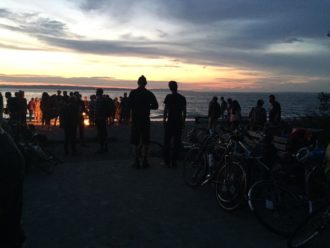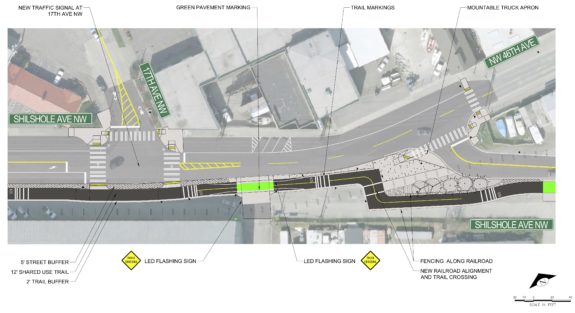
Appellants fighting the city’s decades-long plan to finally complete the Ballard Missing Link of the Burke-Gilman Trail have successfully found another legal maneuver to further delay the needed safety project until 2022, the Seattle Times reports.
A King County Court has decided (PDF) that Seattle cannot redesign the railroad tracks along Shilshole Ave NW and NW 45th Street without first getting approval from the Federal Surface Transportation Board. Though the city’s planned trail route would not remove the mostly-abandoned (but still technically operational) railroad tracks, there are points in the current trail design where tracks would be realigned to make crossings work better. These rebuilt sections of track would be funded by the city, which owns the tracks, not the Ballard Terminal Railroad. The issue isn’t that there’s anything wrong with the city’s plan, just that they need another approval. And every new process opens more opportunities to find more technicalities to further delay the project.
This design was the result of a much-lauded “compromise” between many industrial leaders and trail supporters. Now details of that compromise has been used against the city to further delay the project. Every time the Missing Link comes up for debate again, people say, “Let’s just get trail supporters and opponents together at the same table and work out a deal.” So much for that.
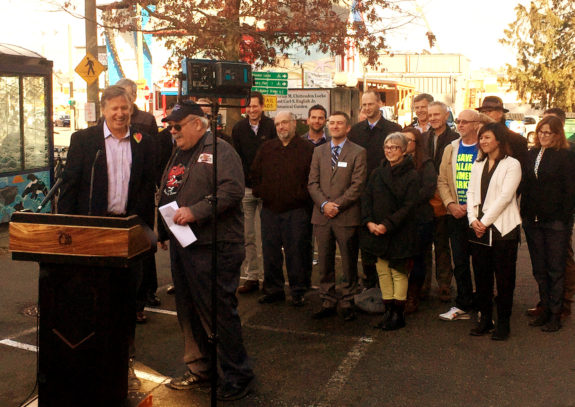
The City of Seattle will appeal the decision, saying it “could have concerning broader implications for public safety,” according to a statement (see full statement below). Cascade Bicycle Club, which has long championed the trail and legally intervened on the city’s behalf, put out a statement that the decision does not alter the fate of the project, but does add delay: (more…)


